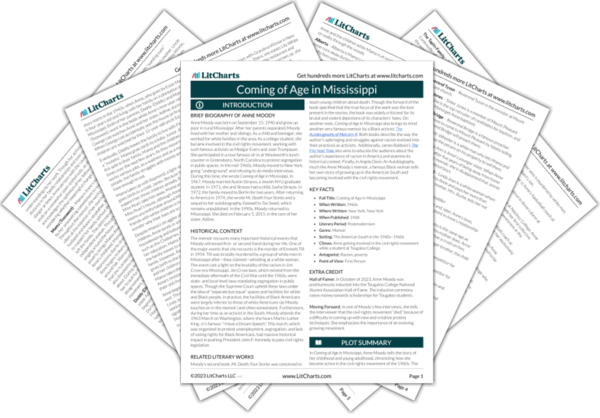Previous
Chapter 8
|
Previous
Chapter 8
|
Coming of Age in Mississippi: Chapter 9 Summary & Analysis |
Next
Chapter 10
|


Upgrade to unlock the analysis and theme tracking for all of Coming of Age in MississippiComing of Age in Mississippi!
Get LitCharts A+